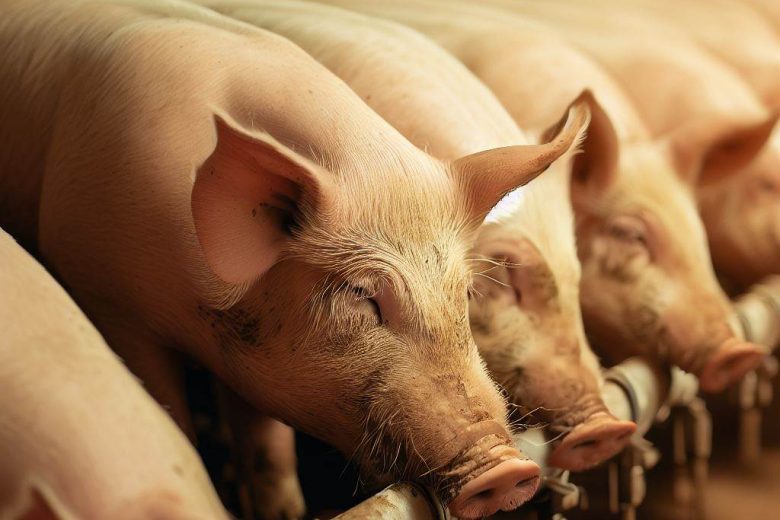Embarking on a journey to become a successful pig farmer requires a combination of dedication, knowledge, and effective management practices. Whether you’re a novice or an experienced farmer looking to enhance your operations, these ten tips will guide you on the path to success in pig farming.
Top 10 Tips on How to Become a Successful Pig Farmer
1. Educate Yourself:
Before diving into pig farming, it’s crucial to acquire a solid understanding of pig behavior, nutrition, health, and breeding. Attend workshops, read books, and consult experienced farmers to build a strong foundation of knowledge.
2. Plan Your Farm:
Develop a comprehensive business plan that outlines your goals, budget, and strategies for pig farming. Consider factors such as the size of your farm, the number of pigs you intend to raise, and the facilities required for their well-being.
3. Select the Right Pig Breed:
Different pig breeds have varying characteristics, such as growth rate, adaptability, and resistance to diseases. Choose a breed that aligns with your goals and the market demand in your region.
4. Provide Proper Housing:
Construct well-designed pig pens that ensure proper ventilation, sanitation, and sufficient space for the pigs to move around comfortably. Adequate housing is essential for the health and productivity of your pigs.
5. Focus on Nutrition:
Develop a balanced and nutritious feeding plan for your pigs. Consult with a veterinarian or nutritionist to ensure that your pigs receive the right combination of proteins, vitamins, and minerals for optimal growth and health.
6. Implement Biosecurity Measures:
Protect your pigs from diseases by implementing strict biosecurity measures. Control access to your farm, quarantine new arrivals, and regularly monitor the health of your herd to prevent the spread of infections.
7. Maintain Hygiene:
Cleanliness is vital in pig farming. Regularly clean and disinfect pens, feeders, and waterers to minimize the risk of diseases. Proper waste management is also essential to prevent environmental pollution.
Read Also: 10 Tips On How To Become A Successful Goat Farmer
8. Invest in Quality Breeding Stock:
Selecting healthy and genetically superior breeding stock is key to producing strong and productive piglets. Choose reputable breeders and ensure that your breeding animals meet high health and genetic standards.
9. Monitor Market Trends:
Stay informed about market trends, consumer preferences, and regulations in the pork industry. Adapting your strategies based on market demands will help you stay competitive and profitable.
10. Network and Seek Mentorship:
Connect with other pig farmers, industry experts, and agricultural organizations. Building a network can provide valuable insights, support, and opportunities for collaboration. Seek mentorship from experienced farmers who can offer guidance based on their practical experiences.
Is Pig Business Profitable?
Pig farming can be profitable when managed effectively. Factors such as proper breed selection, optimal nutrition, disease control, and efficient management practices contribute to the success and profitability of a pig business. Market demand for pork products also influences profitability, making it essential to stay informed about industry trends.
How Many Pigs Do You Start With in Pig Farming?
The number of pigs to start with in pig farming depends on various factors, including available space, resources, and business goals. Beginners often start with a manageable number, such as 10-20 pigs, to gain experience and gradually expand as they become more proficient in managing their herd.
Is Pig a Good Business?
Pig farming can be a good business for those willing to invest time, effort, and resources into proper planning and management. With a growing demand for pork products, a well-organized pig farming venture can provide a sustainable income source. Success in pig farming is often linked to factors such as breeding quality, nutrition, and disease prevention.
Are Pigs a Good Investment?
Pigs can be a good investment when approached with a clear business plan and commitment to best practices. Quality breeding, proper nutrition, and effective disease management contribute to the return on investment. Additionally, staying informed about market dynamics ensures that pig farmers can capitalize on profitable opportunities.
How to Become a Successful Pig Farmer in Nigeria
Education and Training:
Acquire knowledge about pig farming through workshops, seminars, and practical training to understand the nuances of the industry.
Market Research:
Conduct thorough market research to identify local demand, consumer preferences, and potential competitors in the Nigerian market.
Business Planning:
Develop a detailed business plan that outlines your goals, budget, and strategies for pig farming in Nigeria. Consider factors such as breed selection, housing, and feeding practices.
Quality Breeding Stock:
Invest in high-quality breeding stock to ensure healthy and productive pigs. Select breeds that are well-suited to the Nigerian climate and market demands.
Proper Nutrition:
Design a balanced feeding program with the help of a nutritionist to meet the dietary needs of your pigs. Access to quality feed is crucial for optimal growth and development.
Disease Management:
Implement strict biosecurity measures to prevent the spread of diseases. Regularly monitor the health of your pigs and consult with a veterinarian for preventive healthcare.
Efficient Farm Management:
Ensure efficient farm management practices, including proper waste disposal, sanitation, and ventilation in pig pens. Well-maintained facilities contribute to the overall health and well-being of the herd.
Networking:
Build a network within the local pig farming community and seek mentorship from experienced farmers. Networking can provide valuable insights, support, and opportunities for collaboration.
Adapt to Market Trends:
Stay informed about market trends, government regulations, and consumer preferences. Adapt your strategies based on the evolving dynamics of the pig farming industry in Nigeria.
Continuous Learning:
Stay updated with the latest developments in pig farming through continuous learning. Attend workshops, conferences, and engage with industry experts to enhance your knowledge and skills.
By following these steps, aspiring pig farmers in Nigeria can increase their chances of success and build a sustainable and profitable pig farming business.
Conclusion
Becoming a successful pig farmer involves a combination of knowledge, dedication, and strategic planning. By continuously educating yourself, investing in quality infrastructure, and staying attuned to market trends, you can build a thriving pig farming business. Implementing these ten tips will not only contribute to the success of your pig farm but also foster sustainable and ethical farming practices.





Hi am Ivan from Uganda I would like to know the best breeds of pigs. Thanks
Hi Nagaba,
You can visit https://agrolearner.com/factors-to-start-a-successful-piggery-farm/ to know more…
Cheers..